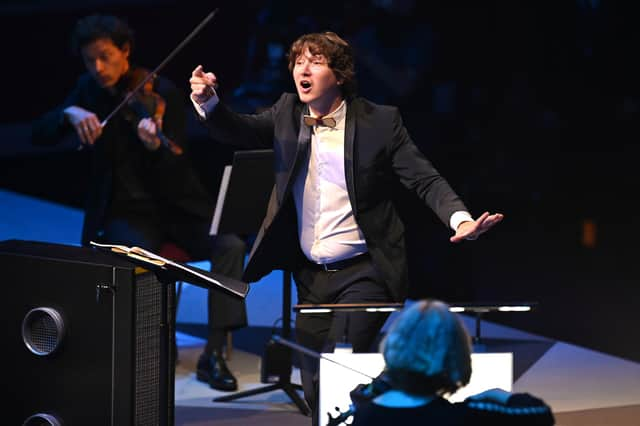Music review: SCO & Maxim Emelyanychev, Usher Hall, Edinburgh


SCO & Maxim Emelyanychev, Usher Hall, Edinburgh ****
For some, Handel’s Messiah is a Christmas piece. For the SCO and Maxim Emelyanychev, however, it’s clearly more of an Easter spectacle (as was its Dublin premiere in 1742). More arresting than simply locating the piece in the church calendar, however, were the ways in which Emelyanychev’s characteristically vivid account pointed up the work’s various connections with Christian festivities through its drama and storytelling.
Emelyanychev was bright, eager and dashing in the celebratory Christmas story of Part 1, launching the introductory Symphony with steely determination – and a richly realised harpsichord part that would continue throughout the piece. Sometimes that enthusiasm went a little too far: his dangerously fast “O thou that tellest” brilliantly captured an excitement at revealing the coming of Christ, but also made countertenor Xavier Sabata’s supple, fluid singing feel rather breathless, and obscured some of the detail in the orchestra’s finely nuanced playing.
Advertisement
Hide AdAdvertisement
Hide AdAfter Christmas celebrations came Easter tragedy, however, and Emelyanychev’s speeds slowed and dramatic contrasts increased in Part 2. It was hard to ignore the contemporary resonances in baritone Matthew Brook’s “Why do the nations so furiously rage together?”, sung with immense power and no little outrage, though the concluding “Hallelujah” chorus was beautifully buoyant rather than monumental. The SCO Chorus – voices jumbled together and spread out with social distancing – was on fine, resonant form when singing as a mass, but less powerful when split across Handel’s intricate counterpoint. Perhaps the distanced seating didn’t help.
If Part 1 was celebration and Part 2 was drama, Part 3 was far more contemplative, kicked off by a glowing “I know that my Redeemer liveth” from soprano Anna Dennis, whose agile, silvery voice was a highlight throughout the performance. It was a compelling account, full of character and big ideas – some more convincing than others, though Emelyanychev offered a distinctively fresh perspective on Handel’s choral warhorse.
A message from the Editor:
Thank you for reading this article. We're more reliant on your support than ever as the shift in consumer habits brought about by coronavirus impacts our advertisers.
If you haven't already, please consider supporting our trusted, fact-checked journalism by taking out a digital subscription at https://www.scotsman.com/subscriptions